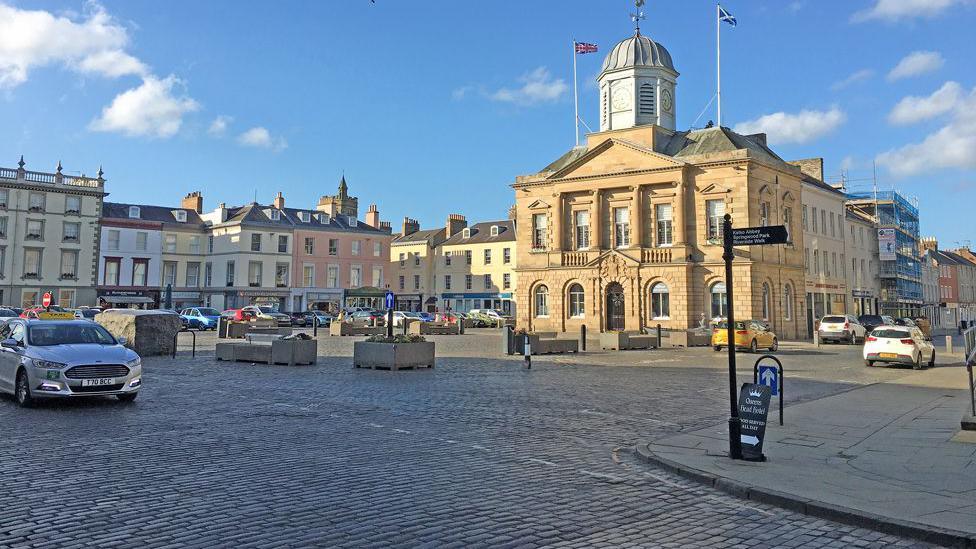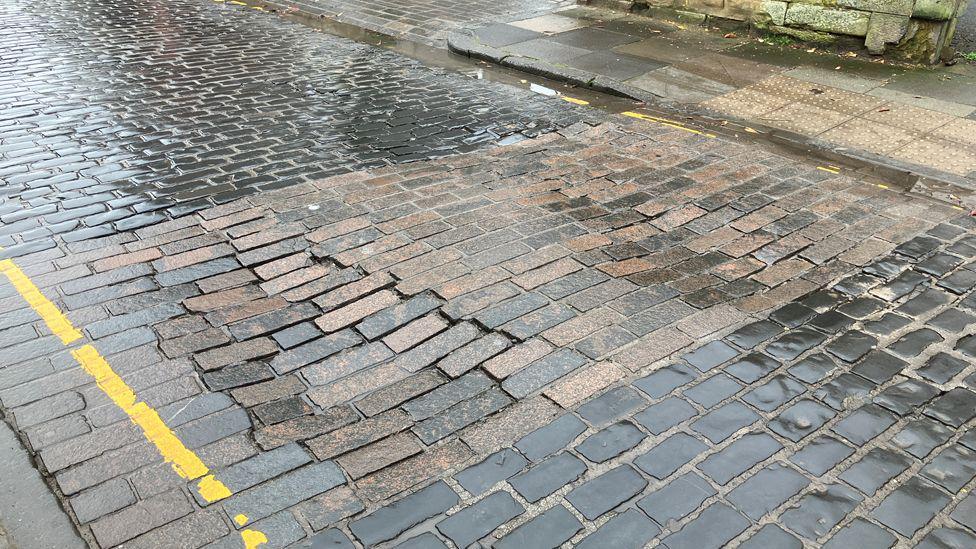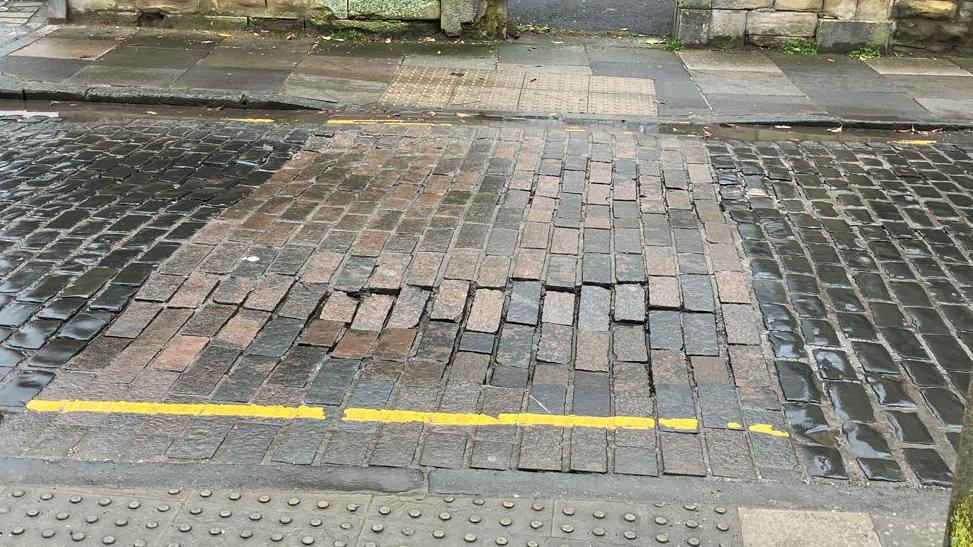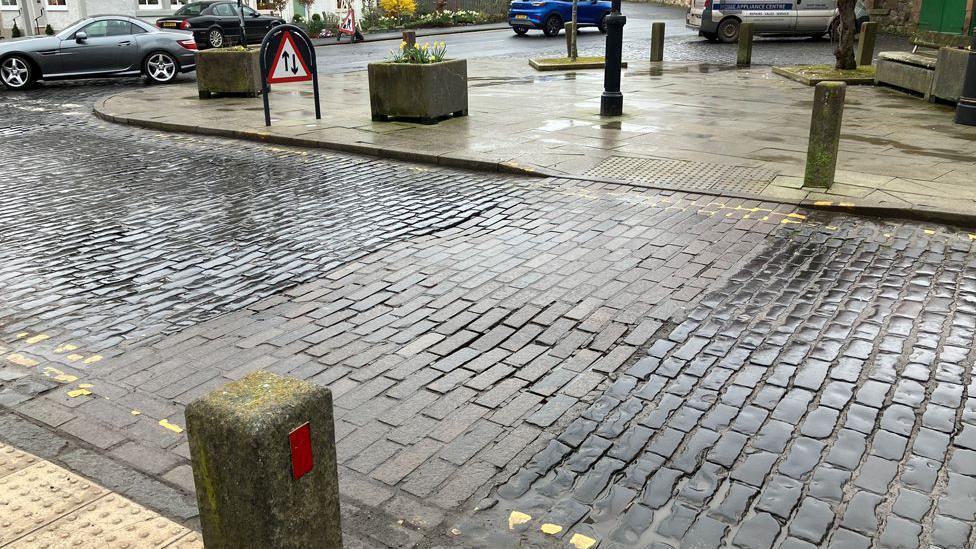Kelso residents defend town's trademark cobbles

Kelso is famous for its trademark cobbled town centre
- Published
Residents of a Borders town have united in their opposition to its famous cobbles being replaced with tarmac in an effort to improve crossings.
Kelso town square is reputed to be the largest formal square in Scotland still complete with setts - rectangular paving blocks - and cobbled streets run off it in a radial pattern.
A lot of work has been undertaken by Scottish Borders Council (SBC) in recent years to maintain its appearance along with regular work to slow or reduce traffic flow, and make the centre more pedestrian-friendly.
This includes introducing a one-way system through the town.

Cobbled crossings in the town are sinking
However, new crossings, where streets were narrowed to create more walkways, have ensured traffic passes at the same spot, and the points where tyres cross are sinking and creating potholes.
Kelso Community Council (KCC) has been in discussions with SBC about how these can be remedied.
It invited local residents to comment on the potential for tarmac to be used as a quicker and cheaper option for the crossings, and one that would improve journeys for people with mobility issues.
A social media survey asked people to choose between tarmac or the more expensive replacement of re-cobbling the crossings with bricks.

The council said replacing the cobbles could offer a number of advantages
The response was overwhelmingly in favour of cobbles, with more than 400 respondents asking the council to retain the traditional method.
Only a handful opted for tarmac, including some people with disabilities who pointed out the challenges faced by manoeuvring a wheelchair or mobility scooter, or walking with sticks, on cobbles.
Provost Gavin Horsburgh, who chairs KCC, said it had been approached by the council to seek feedback on the future of the crossings which had "sunk over the years".
"It has been suggested by councillors that these cobbles get lifted, the ground made correct and the cobbles re-laid or that the cobbles get lifted and the area tarmacked," he said.
"Kelso is unique with its cobbled streets and square, and the feeling from members of the public - after seeking their advice on our social media - they overwhelmingly suggest the cobbles should be retained as it's part of our history and heritage."
He said it was now down to SBC to decide the "best way forward".

Residents have said they want to see the cobbles remain
The council said it was aware of "localised settlement" at a number of crossing points in the town and said it would like to carry out repairs when time allowed.
However, it stressed that it would listen to local residents' concerns about replacing the cobbles.
The council said using asphalt or tar was something it had been "keen to explore" as it could offer a number of advantages.
They included "greater definition" of the crossings, "greater resilience" and much quicker repairs in future.
Follow the BBC for the South of Scotland on X, external. Listen to news for the Scottish Borders on BBC Sounds.
Related topics
- Published16 January 2024
